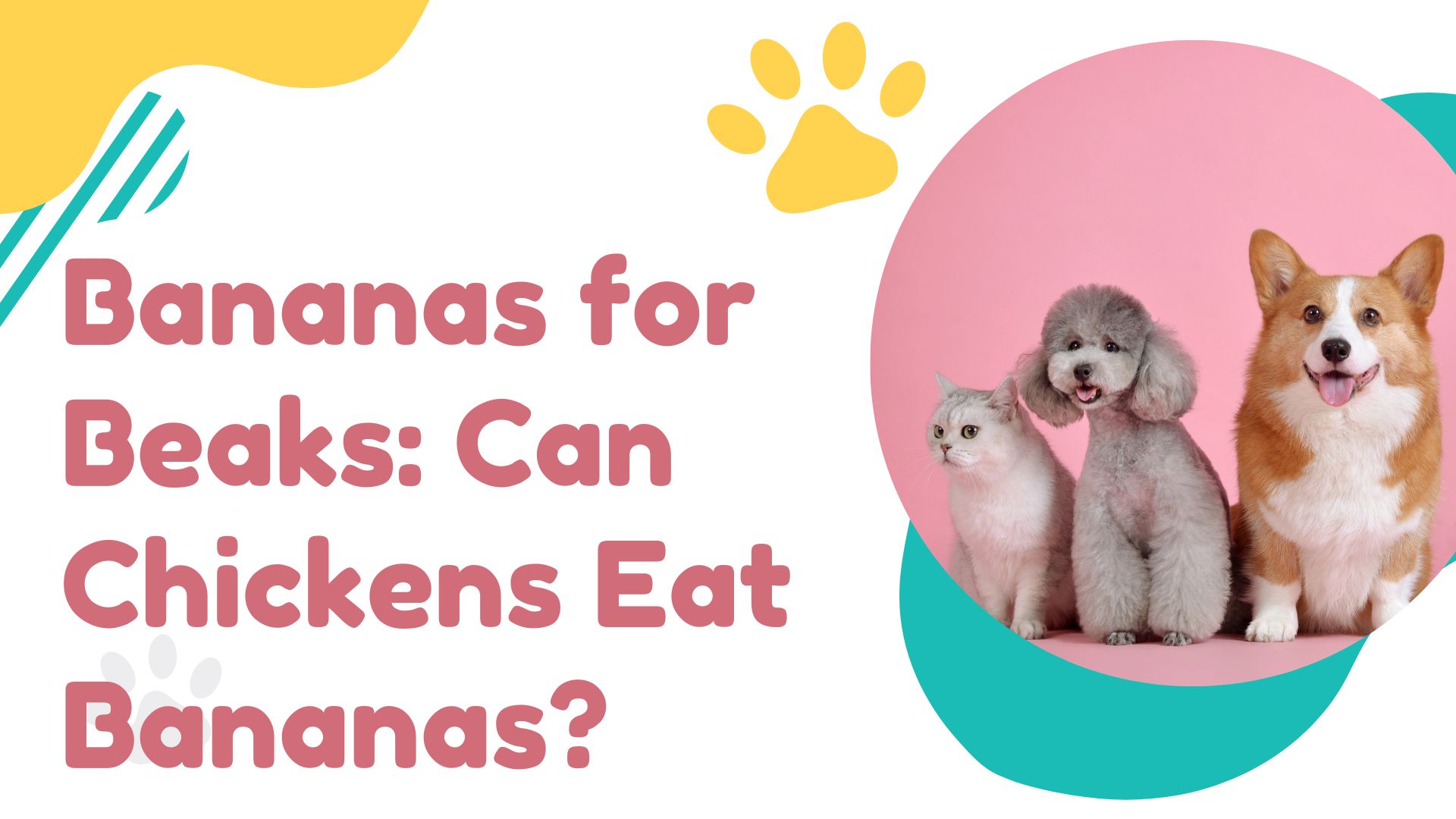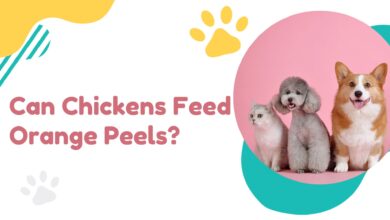Bananas for Beaks: Can Chickens Eat Bananas?
Bananas for Beaks: Peeling Back the Truth About Chickens and their Banana Cravings

Many chicken owners wonder: can chickens eat bananas? This common question arises because bananas are a healthy, affordable, and readily available fruit.
While chickens love treats, not all human foods are safe for them. When fed properly though, bananas can provide valuable nutrition. This article will cover the key considerations around feeding bananas to backyard chickens.
Bananas for Chickens: Nutritional Benefits and Concerns
Bananas are not just a delicious treat for humans; they can also be a nutritious addition to a chicken’s diet.
Packed with vitamin C, they bolster the immune system and their antioxidant properties help fend off free radicals.
The presence of vitamin B6 aids in energy production, while potassium ensures a balanced electrolyte system. Even the banana peel, rich in fiber, can aid in digestion.
However, it’s not all sunshine and tropical vibes…
The natural sugars in bananas, if given in excess, can lead to weight gain in chickens.
Moreover, the soft consistency of bananas might not break down completely in a chicken’s crop, potentially leading to blockages.
This is a significant concern as chickens don’t have teeth and rely on their crop to process food. Hence, moderation is the mantra when it comes to feeding bananas to chickens.
Feeding Guidelines and Impact on Egg Nutrition
When introducing bananas into a chicken’s diet, it’s crucial to monitor the portion sizes. Expert advice from The Happy Chicken Coop suggests that treats should constitute no more than 10% of a chicken’s daily food consumption.
A few small pieces of banana or its peel, given 2-3 times a week, is a sufficient treat. Remember, bananas should be an addition to a balanced diet, not a replacement.
Can Chickens Eat Banana Peels?
Many people wonder if chickens can eat banana peels after enjoying the flesh. Feeding banana peels provides some benefits as a supplemental treat.
Banana peels are a good source of fiber for digestive health. Their abrasive texture also helps chickens grind food in their crop.
However, peels may contain pesticide residues if non-organic. Backyard Poultry recommends washing peels thoroughly before feeding.
Overall, banana peels are safe for chickens in moderation. Limit to a few small peeled pieces 2-3 times per week.
Can Chickens Eat Dried Bananas?

Dried bananas provide a chewy, sweet treat for chickens. Their portability also makes them easy to dispense in a coop. However, dried bananas contain more concentrated sugars.
Too much could lead to obesity and related health issues.
When feeding dried bananas, hydrate chickens after to prevent impactions. A few small pieces a couple times a week will sufficiently supplement their diet.
Read More: Can Chickens Eat Tomatoes?
Can Chickens Eat Banana Leaves?
Banana leaves offer trace nutrients like potassium. But they also contain oxalates which can bind minerals and cause deficiencies.
Community Chickens notes banana leaves are not toxic, but are not an ideal food source compared to the fruit.
Chicken owners can offer a few banana leaf pieces weekly. But a wide variety of greenery is preferred for more balanced nutrition.
Other Fruits Chickens Can Eat
While bananas make a good treat, chickens benefit from diverse fruits. Berries provide different antioxidant compounds. Melons and citrus offer vitamin C. Apples have polyphenols.
When comparing antioxidants, berries contain higher levels per serving than bananas. For example, blueberries provide double the anthocyanins.
Integrating a mix of fruits will ensure chickens get a range of micro- and phytonutrients.
What to Avoid Feeding Chickens
While bananas make a nutritious treat, some foods are unsafe for chickens. Owners should avoid:
- Avocados – contain persin toxin which can damage heart tissue
- Dried beans or peas – uncooked contain hemagglutinin lectins which prevent nutrient absorption
- Potatoes – contain solanine toxin which can cause neurological impairment
- Fruit pits and seeds – contain cyanide compounds which are poisonous
Sticking to a balanced commercial feed along with limited fruit and veggie treats is ideal for chicken health.
Signs of Crop Impaction in Chickens
Overfeeding bananas does pose a crop impaction risk. Owners should watch for these signs:
- Lethargy and fluffed feathers from discomfort
- Swelling around the crop area
- Loss of appetite and decrease in egg production
- Gurgling sounds, retching, or trouble breathing
Early intervention is key to relieving blockages before they become severe.
Banana peels are over 30% fiber, providing excellent material for compost. Chicken owners can recycle peels after feeding. Composting peels for 2-3 months produces rich, nutritious soil for the coop.
The potassium and other minerals in peels will carry over to the compost. This supports plants, increases drainage, and replenishes the coop environment.



